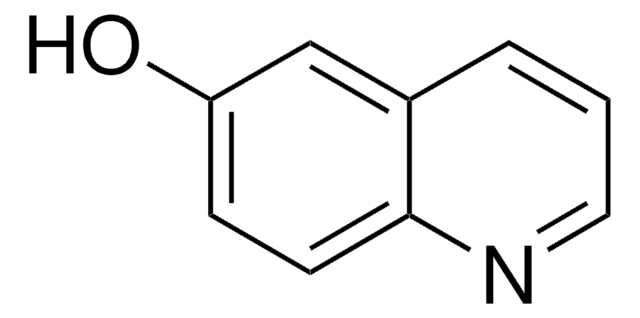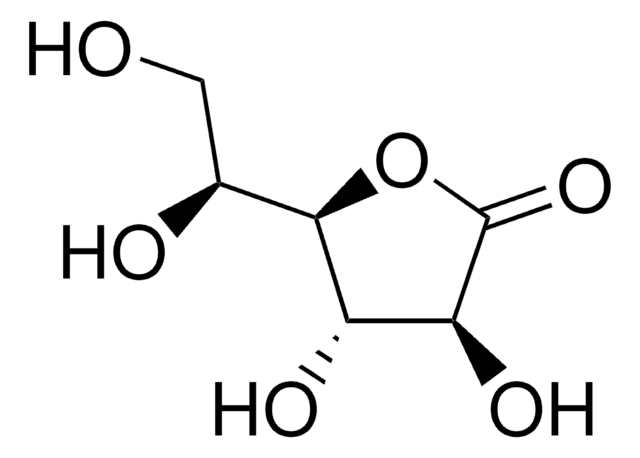SML2035
Didox
≥98% (HPLC)
Synonym(s):
3,4-Dihydroxybenzohydroxamic acid, 3,4-Dihydroxyphenylhydroxamic acid, BRN 2096682, CCRIS 7909, N,3,4-Trihydroxybenzamide, NSC 324360, NSC-324360, VF 147
About This Item
Recommended Products
Assay
≥98% (HPLC)
form
powder
color
white to light brown
solubility
DMSO: 2 mg/mL, clear
storage temp.
−20°C
SMILES string
OC1=CC=C(C(NO)=O)C=C1O
InChI
1S/C7H7NO4/c9-5-2-1-4(3-6(5)10)7(11)8-12/h1-3,9-10,12H,(H,8,11)
InChI key
QJMCKEPOKRERLN-UHFFFAOYSA-N
Biochem/physiol Actions
Storage Class Code
11 - Combustible Solids
WGK
WGK 3
Flash Point(F)
Not applicable
Flash Point(C)
Not applicable
Choose from one of the most recent versions:
Certificates of Analysis (COA)
Sorry, we don't have COAs for this product available online at this time.
If you need assistance, please contact Customer Support.
Already Own This Product?
Find documentation for the products that you have recently purchased in the Document Library.
Our team of scientists has experience in all areas of research including Life Science, Material Science, Chemical Synthesis, Chromatography, Analytical and many others.
Contact Technical Service








